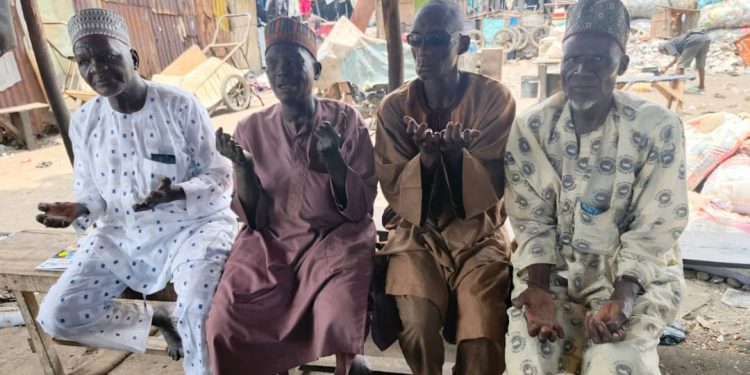In the leprosy survivors’ community of Alabarago, life is filled with challenges, both physical and societal. Umar Abdullahi, one of the community leaders, speaks candidly about their struggles. “We cannot work as laborers due to nerve damage, nor move freely because of the rejection we face,” he explains.
The community’s survival depends on an enabling environment, yet such opportunities are scarce. Abdullahi reflects on the progress seen in developed countries, where people with disabilities actively contribute to economic growth. “It’s no mystery, just a result of proper planning and inclusion,” he adds. His words echo the famous sentiment of Karl Marx, who asserted that society’s economic structure is shaped by its relations of production.
For the residents of Alabarago, however, economic participation remains a distant dream. “Our youth collect bottles, plastics, and iron for recycling, while others push wheelbarrows to scrape by,” says Abdullahi. Despite these efforts, the stigma surrounding leprosy continues to cast a shadow over the community. Passersby often dismiss them with cruel remarks, reinforcing their isolation. This segregation persists, even though leprosy is curable within six months to a year with the right medication, as noted by the International Development Organization for Leprosy Mission in Nigeria.
Alabarago, a place where leprosy survivors have made their home, is marginalized in both social and economic development. Without access to basic amenities or sustainable livelihoods, its residents struggle to survive. Abdullahi stresses that economic growth stems from utilizing skills and labor to create opportunities, yet Alabarago’s potential is stifled by neglect. “Until this community is given a new lease on life,” he says, “we will remain trapped in an economic mirage.”
Unlike other urban slums in Lagos, where creativity and production drive local economies, Alabarago is left behind. The community’s challenges are numerous—rooted in misconceptions, self-stigma, and a lack of legal and social support. As Abdullahi puts it, “To whom much is given, much is expected.” Alabarago awaits intervention from the government and other duty-bearers to implement policies that could transform the area from a neglected outpost into a thriving community.
For true progress, the government must focus on disability-inclusive development, particularly for leprosy survivors. Concrete planning, advocacy for social change, and investments in low-cost housing, healthcare, and economic empowerment are essential. Thailand, for example, has made significant strides in disability care, and Nigeria, with its wealth and resources, could achieve even more.
Disability, in all its forms, requires sustained action—through policy, strategic programs, and ongoing assessments. Only by addressing these issues can Nigeria become a nation where every citizen, regardless of ability, has equal opportunities to contribute to a prosperous and inclusive economy.
This story was written by Ayodele Falana, MSc Student of Mass Communication, University of Lagos, following the training on Disability Reporting facilitated by Blessing Oladunjoye, Publisher of BONews Service

